Publications on natural resources management, biodiversity and climate change
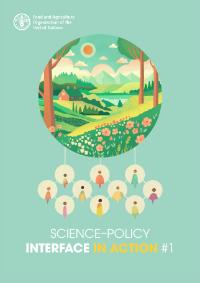
Science–Policy Interface in action #1
01/03/2024
The brochure delves into the critical interface between science and policy within the agrifood system, emphasizing its role in driving transformation, resilience, and food security. It highlights the importance of Science–Policy Interfaces (SPIs) in translating scientific discoveries into actionable policies and practices.
055033316b184760ac1014117ea0254d.jpg?sfvrsn=a62a48e8_2)
Promoting sustainable and circular bioeconomy through agriculture practice in Eastern Europe and Central Asia
31/12/2023
This report presents an overview of concepts related to bioeconomy and the benefits of their implementation in agriculture and shares agriculture production trends, bioeconomy initiatives and sustainable agriculture approaches from throughout the Eastern Europe and Central Asia region.
.jpg?sfvrsn=8c7fecdb_2)
Digital Villages In Europe and Central Asia
31/01/2024
The Digital Village Initiative aims to transform rural life in Europe and Central Asia by deploying digital technologies. This project focuses on three key objectives: deliver increased agricultural productivity by introducing advanced technologies to farmers; connect rural communities through digital platforms that enhance access to essential services, and foster sustainable and resilient rural economies for long-term growth and prosperity.
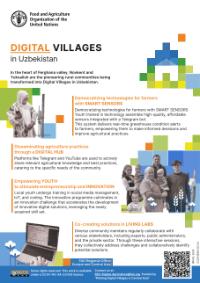
Digital Villages in Uzbekistan
29/01/2024
In Uzbekistan's Ferghana Valley, the rural communities of Novkent and Yuksalish are at the forefront of a remarkable transformation into Digital Villages. This leaflet explores how these areas are harnessing technology to revolutionize agriculture and empower youth.
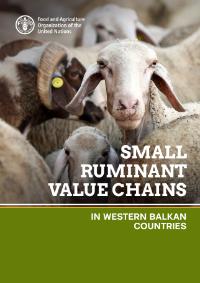
Small ruminant value chains in Western Balkan countries
31/01/2024
The report delineates four principal market channels for small ruminant milk and three for small ruminant meat that farmers utilize for product commercialization. Albanian small ruminant farmers predominantly focus on milk production, while their counterparts in Serbia, Montenegro, and Bosnia and Herzegovina are inclined towards meat production.
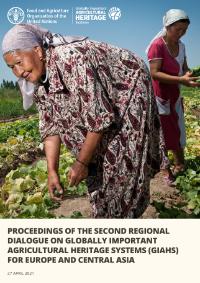
Proceedings of the Second Dialogue on Globally Important Agricultural Heritage Systems for Europe and Central Asia
21/12/2023
The Second Dialogue on Globally Important Agricultural Heritage Systems (GIAHS) in Europe and Central Asia aimed to promote the GIAHS Programme in the region, raising awareness on the potentiality of participating in the dynamic conservation of these sites. Speakers from all around the region discussed about traditional agricultural systems, bringing the experience of existing sites at different stages of recognition and potential ones that are still in the process of identification.
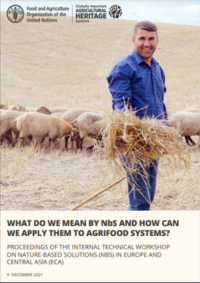
What do we mean by NbS and how can we apply them to agrifood systems?
11/12/2023
Proceedings of the technical workshop on nature-based solutions in Europe and Central Asia FAO acknowledges that nature-based solutions are cost-effective interventions that can enhance resilience in agriculture and food production while mitigating climate change and enhancing the environment. These strategies mimic nature by integrating the ecosystem functioning at a landscape scale to address socio-environmental challenges such as water scarcity, food insecurity and climate change adaptation
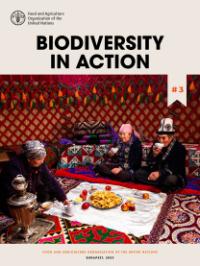
Biodiversity in Action — #3
30/11/2023
The third issue of Biodiversity in Action illustrates why the health of humans and the environment requires biodiversity and how all dimensions of food security depend on it, highlighting the risks for nutrition and health and the benefits for food and nutritional security.
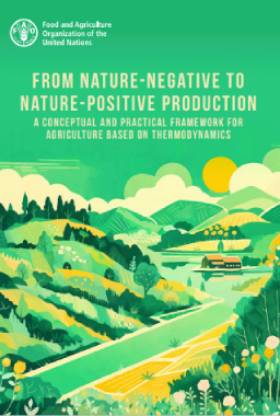
From nature-negative to nature-positive production: A conceptual and practical framework for agriculture based on thermodynamics
04/10/2023
This document discusses the inherent functioning of agroecosystems by analysing how ecosystems naturally develop their own sustainability and productivity; it concludes that the most critical systemic features in this regard are complexity, energy storage and energy mobilization capacities.
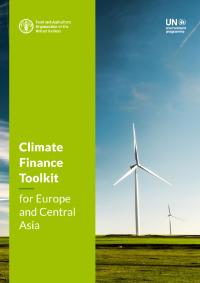
Climate Finance Toolkit for Europe and Central Asia
01/01/2022
This Climate Finance toolkit was prepared by the Regional Office for Europe and Central Asia of the Food and Agriculture Organization of the United Nations, jointly with the United Nations Environment Programme Regional Office for Europe and Central Asia, as part of the efforts both organizations systematically conduct to support countries to access scaled-up sources of climate finance.
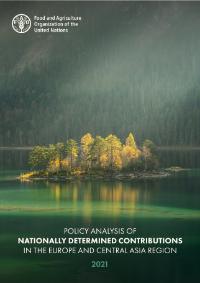
Policy analysis of Nationally Determined Contributions in the Europe and Central Asia region
01/01/2022
This publication has the objective of providing a comprehensive analysis of the key trends in greenhouse gas (GHG) emissions and vulnerability to climate change in the Europe and Central Asia (ECA) region, compiling the most relevant efforts and progress reported by countries in the implementation of mitigation and adaptation goals and measures in recent years.
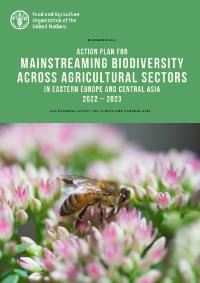
Regional Action Plan for mainstreaming biodiversity across agricultural sectors in Eastern Europe and Central Asia 2022–2023
01/01/2022
In collaboration with its partners, the Food and Agriculture Organization of the United Nations (FAO) leads the integration, in a structured, holistic and coherent manner, of actions for the conservation, sustainable use, management and restoration of biological diversity across agricultural sectors at national, regional and international levels.
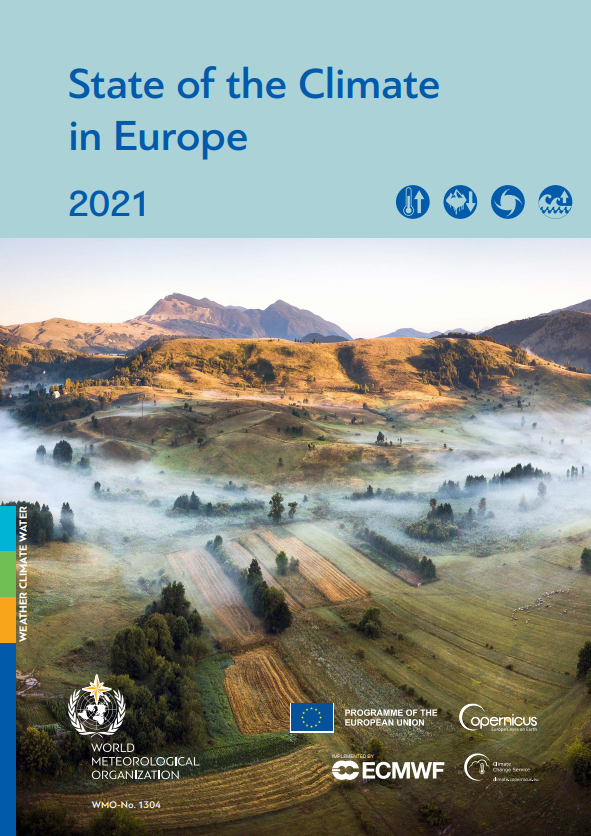
State of the Climate in Europe 2021
01/01/2022
The report provides the status of key climate indicators using the WMO and partner organizations operational monitoring systems and latest data and information on impacts, risks and policy from United Nations (UN) agencies. It addresses specific physical science, socio-economic and policy aspects that are relevant to WMO-RA6 domain and responds to Members needs in the fields of climate monitoring, climate change and climate services.
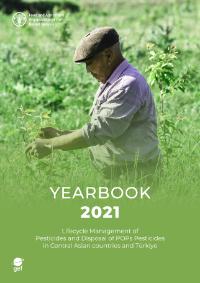
Yearbook 2021: Lifecycle Management of Pesticides and Disposal of POPs Pesticides in Central Asian countries and Türkiye
01/01/2022
Within the scope of this Yearbook 2021, the main achievements of the GEF funded/ FAO managed project 'Lifecycle Management of Pesticides and Disposal of POPs Pesticides in Central Asian countries and Turkey' in the last year are highlighted, in order to share progress with the key stakeholders and to increase the synergy for more efficient results ahead. Overall information as well as country based information can be found in the Yearbook 2021.
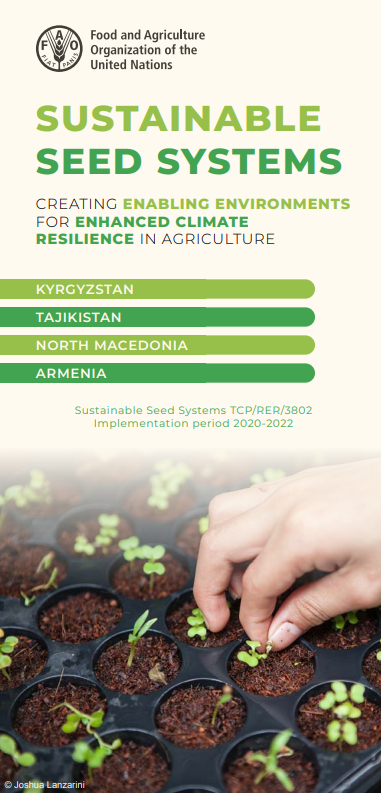
Sustainable seed systems
01/01/2022
The brochure aims to summarize the objective and goals of the project and raise general interest and awareness among professionals on the work which is happening in the region related to seed systems.
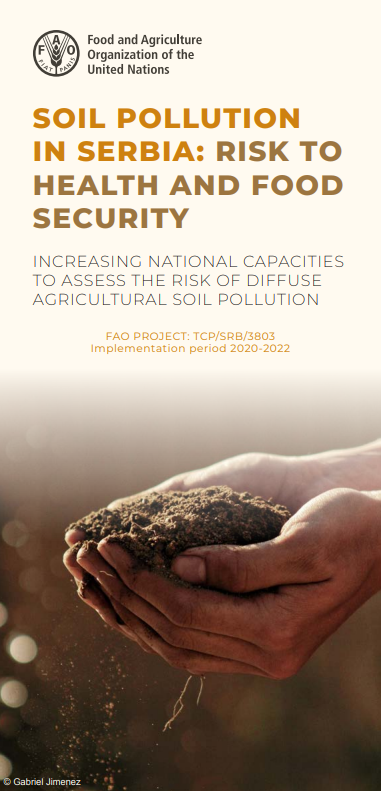
Soil pollution in Serbia: risk to health and food security
01/01/2022
The brochure aims to summarize the objective and goals of the project and raise general interest and awareness among professionals and farmers on the work happening in Serbia on diffuse soil pollution related to agriculture.
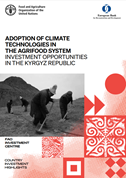
Adoption of climate technologies in the agrifood system: investment opportunities in the Kyrgyz Republic
01/01/2022
Agrifood systems are major contributors to greenhouse gas emissions and increasingly under pressure to become more resource-efficient. The sector also faces threats from climate change, due to its dependence on natural resources.
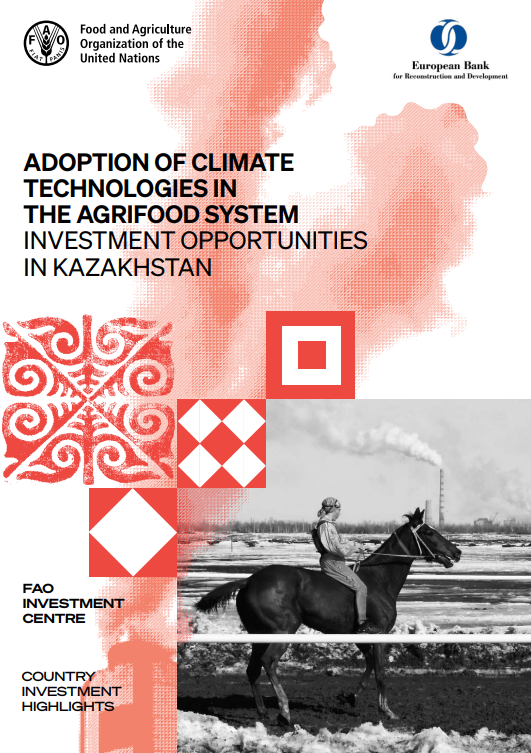
Adoption of climate technologies in the agrifood system: investment opportunities in Kazakhstan
01/01/2022
Agrifood systems are major contributors to greenhouse gas emissions and increasingly under pressure to become more resource-efficient. The sector also faces threats from climate change, due to its dependence on natural resources.
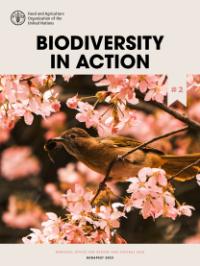
Biodiversity in Action
01/01/2023
Both climate change and biodiversity loss have distorting social and economic impacts on development and cause severe risks for food security, nutrition and livelihoods among rural populations in Europe and Central Asia, most of whom depend directly or indirectly on the agricultural sector.
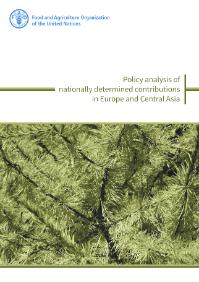
Policy analysis of nationally determined contributions (NDC) in Europe and Central Asia
15/06/2018
This publication compiles and analyzes the most relevant and updated information on policies and regulatory frameworks related to climate change in the region, including information on access to available climate finance to support countries in the implementation of their goals under the Paris Agreement.
